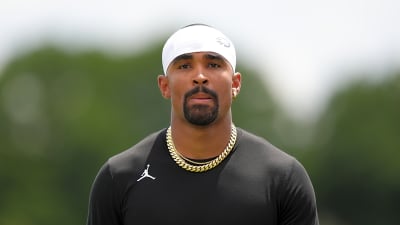
Barcelona’s season is barely underway, and already tension is bubbling under the surface. After a hard-fought start that produced seven points from three away fixtures, coach Hansi Flick chose not to highlight resilience or grit. Instead, he sounded an alarm: “Egos kill success.” The blunt remark, reported by Marca, landed awkwardly inside the dressing room, where several players quietly admitted they did not understand being accused of selfishness.
According to those close to the squad, the mood is less hostile and more bewildered. No shouting matches have erupted, no public confrontations. What players are waiting for is clarity. Did Flick mean a few individuals? Was it a general warning? Or is it a coded message that nobody dares to address out loud?
Players React: Acceptance, Defensiveness, and Quiet Doubt
The international break became the stage for reactions. Pedri, usually diplomatic, admitted he did not know who the coach was referring to, but stressed that last year’s trophies arrived because “everyone worked together without chasing personal glory.” That was his way of defending the squad’s mentality while keeping the door open for internal reflection.
Lamine Yamal, still only 17, handled the topic with surprising maturity. He acknowledged mistakes, yet reminded critics that Barcelona secured seven points out of nine in tricky away grounds. His message was clear: performances might not sparkle yet, but they are not born of arrogance. For him, the issue lies in rhythm and sharpness, not ego.
Fermín López leaned into Flick’s words, praising his standards and suggesting that humility must always come first. That aligned perfectly with Flick’s intended message, though not all teammates seemed eager to echo it.
Spanish media quickly picked up on these differences in tone. On El Larguero, Antonio Romero and Jordi Martí flagged Yamal’s response as evidence of an underlying split, between those who embrace Flick’s tough-love rhetoric and those who see it as misfired. Veteran host Manu Carreño went further, expressing doubts about whether Flick is treading the right path by airing such remarks in public.
Flick’s Method: Tough Love or Miscalculation?
Flick’s reputation has never been one of indulgence. At Bayern Munich, he set strict standards, and at times his bluntness was praised for dragging performances to elite levels. However, the Catalan club has its own delicate chemistry, with a mix of senior players defending legacies and teenagers trying to prove they belong on the biggest stage.
When a coach publicly calls out “selfishness,” players interpret it differently. Veterans may feel unfairly accused after years of sacrifice, while youngsters might take it as an attack on their maturity. The risk is that a broad-brush comment alienates the very squad he is trying to bind together.
Yet there is another perspective. Flick might be attempting a pre-emptive strike. The season is long, expectations are heavy, and internal complacency can creep in after a trophy-winning year. By highlighting ego now, Flick could be reminding everyone that Barcelona’s greatest threat is not just Real Madrid or PSG, it might be internal division. In that sense, the message, however clumsy, might be about instilling humility before cracks widen.
Why This Moment Feels So Delicate
What makes this episode fascinating is the timing. Barcelona are unbeaten, but might not be happy with how things have started this season. Criticism about egos feels out of step with results. It suggests Flick has seen patterns in training or small incidents that, to him, foreshadow larger problems.
This is where the story humanises. Imagine being a 18 year-old like Yamal, hearing your coach accuse the team of selfishness while you’re still juggling adolescence with superstardom. Or a senior player like Pedri, carrying the responsibility of linking midfield and attack, wondering if a subtle finger is being pointed your way.
For Flick, the challenge now is communication. Inside the dressing room, explanations need to replace ambiguity. The words “egos kill success” can be motivational if backed by clarity and constructive dialogue. Left hanging, they can fester into suspicion.
Final Thoughts
Barcelona return from the break facing Valencia in La Liga before hosting Newcastle in the Champions League. Those matches will be telling. If performances show unity and fluidity, Flick’s words will be rebranded as a timely jolt. If the squad looks disconnected, questions about his man-management will intensify.
Fans should also watch how senior voices, Lewandowski, Ter Stegen, or even new leaders like Araújo, frame the debate. If they back Flick openly, the dressing room will likely fall into line. If silence or subtle pushback persists, the story grows legs.
Ultimately, this episode is less about one comment and more about trust. Players want to know that their coach sees them fairly, values their sacrifices, and critiques them with purpose. Flick wants to know that his squad can handle hard truths without slipping into fragility. The balance is fine, and the season could pivot on whether both sides interpret this clash as confrontation or as constructive honesty.
More must-reads:
- Key takeaways from USMNT's concerning home loss to Korea
- 10 players from the NFC North who have the most to prove in 2025
- The 'College football FBS nicknames' quiz
Customize Your Newsletter
 +
+
Get the latest news and rumors, customized to your favorite sports and teams. Emailed daily. Always free!








